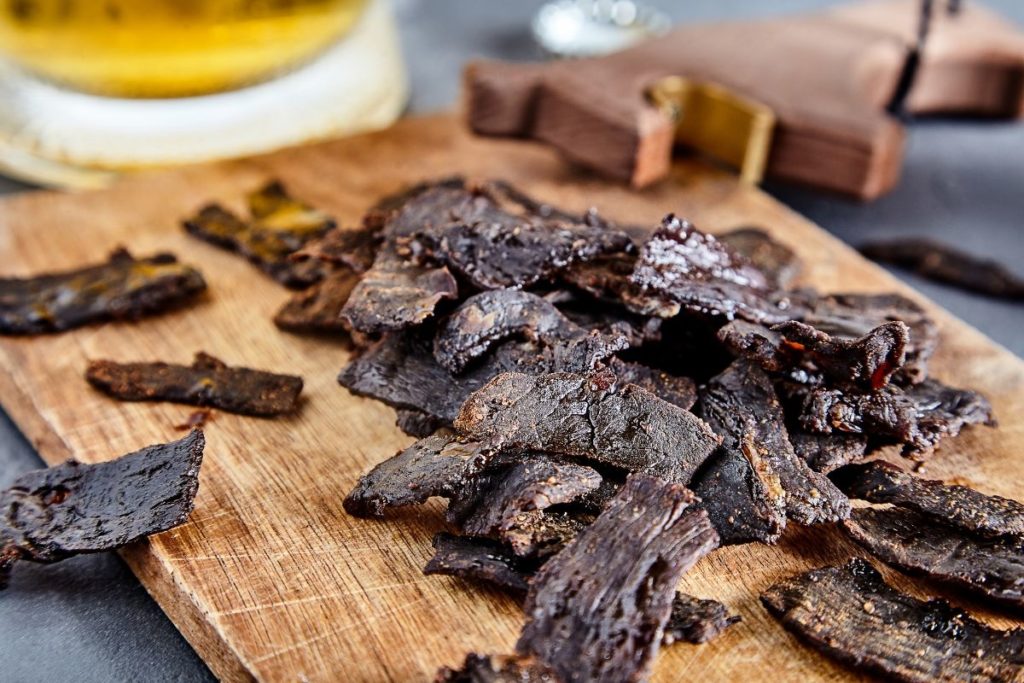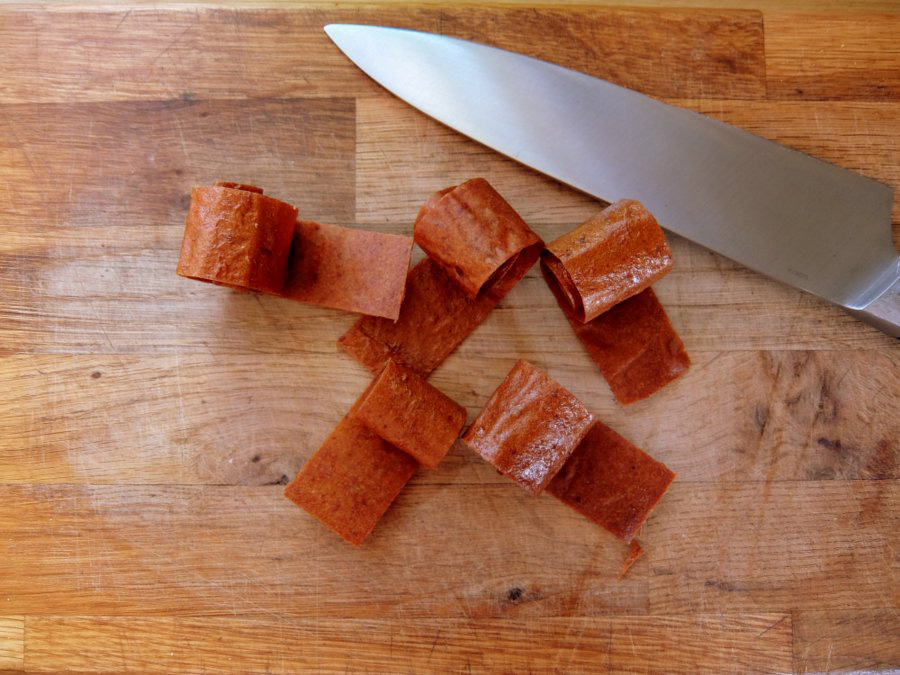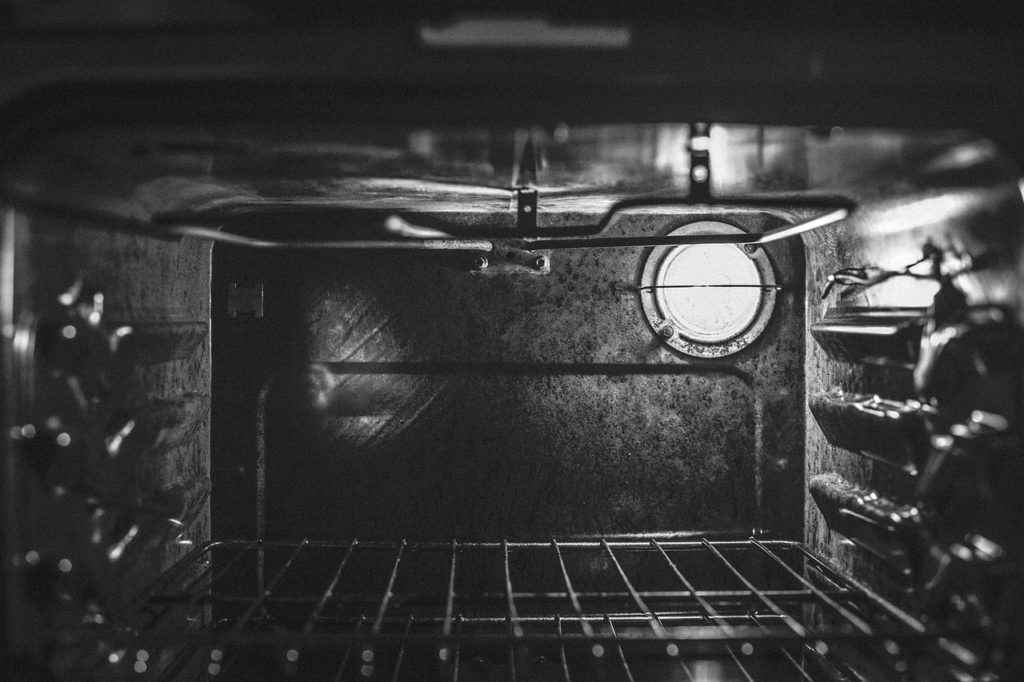Working out how long to dehydrate jerky is something that takes practice. It is a case of finding that sweet spot where there is a nice chew to the jerky without it being too brittle.
Dehydrating jerky is not really a case of saying, this is how many hours to do it for, there are several factors that come into play, however, I have some good tips that will help you decide when your jerky has dried enough so let’s take a look.
Table of Contents
Determining How Long To Dehydrate Jerky
Dehydrating anything, not just jerky, is a process that needs your attention. We can ballpark a length of time that is roughly correct but there needs to be some checking towards the end of dehydrating your jerky to get it just right.
In most cases dehydrating jerky could take anywhere between 5 – 15 hours depending on different variables.
An example to work from is this beef jerky recipe that uses a simple marinade which takes roughly 6 – 10 hours to dry.
Factors Affecting Jerky Drying Times
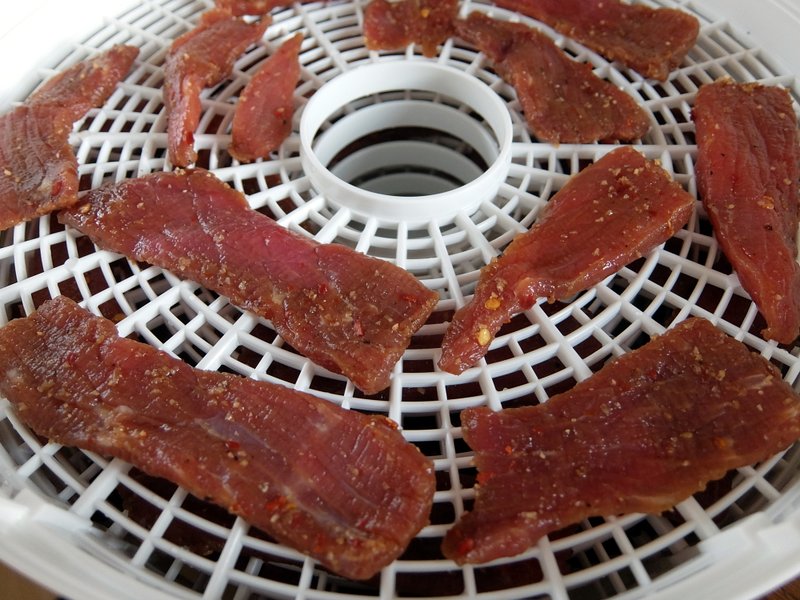
There are certain variables that will either shorten or lengthen the time it takes to dehydrate any jerky so altering these variables will help you estimate (with practice) a drying time.
Thickness: As with dehydrating anything the thickness of the meat will have an affect on drying time. Simply put, the thicker your jerky the longer it is going to take to dehydrate.
You will want to slice the jerky less the 1/4 inch / 6mm thick but more than 1/8 inch thick / 3mm. Between this range will give good texture without making it overly difficult to thoroughly dry the jerky.
Method Of Dehydration: Depending on whether you dry jerky in a dedicated food dehydrator, oven or even sun drying will have an effect on dehydration time. The quickest and most efficient method is with a dehydrator, sun drying and oven drying will in most cases take longer as there is less airflow.
Marinade & Salt: If you are using a wet marinade then you will need to blot this thoroughly before you start dehydrating the jerky. If you leave a wet marinade on the surface of the meat then this has to dry out before the jerky even begins to dry.
Salt levels also affect the amount of moisture in the meat before drying. Salt draws moisture out of the meat at the same time as helping draw flavour from the marinade or rub into the jerky.
Dehydrator Temperature: The temperature in which you need to dehydrate jerky is important. To make meat safe to eat and kill possible pathogens the jerky needs to be heated, all the way through, to 160°F / 71°C and 165°F / 74°C for poultry.
Once this temperature has been reached internally you can lower the heat in which you dehydrate jerky to around 130°F – 140°F. If you leave the meat dehydrating at a higher temperature it will of course dehydrate quicker but the texture will be more brittle and less pleasing.
How To Check If Your Jerky Is Done – Jerky Doneness Tests
Checking for “doneness” is to all intents and purposes a case of testing and sampling. You’ll need to check the progress of the jerky drying regularly and towards the end of drying especially so.
There are a couple of common methods to check the jerky is dried that work quite well and they are as follows:
The Bend Test
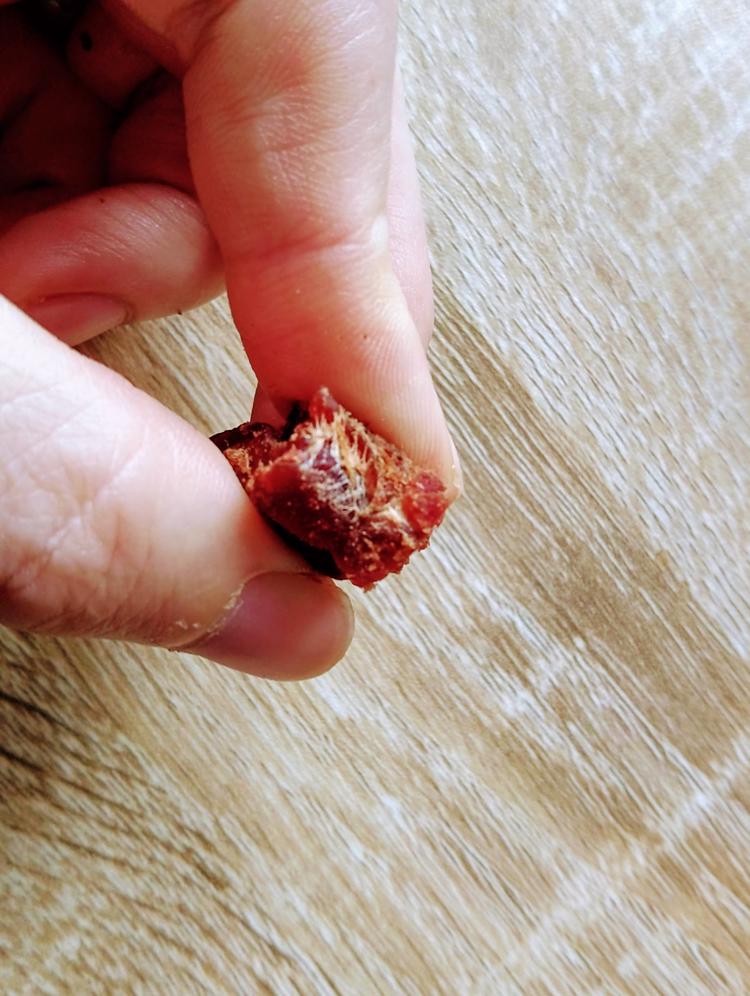
When you reach a point when you think you need to check if your jerky is done the simplest method is the bend test.
To do the bend test take a piece of jerky out of the dehydrator and let is cool for 5 – 10 minutes.
Once cooled bend the jerky at a 90 degree angle, look for any moisture being squeezed out. If there is the jerky needs to dry more
If dried properly the jerky should almost fray where the meat is bent but not snap or crack.
Chew Test
After bending the jerky and being satisfied give the jerky a chew.
The texture should be almost like leather and be chewy without being soft or moist. It should not be brittle or sharp which would indicate it has been overdried.
Once fully dehydrated store the jerky correctly and it should last quite a while.
